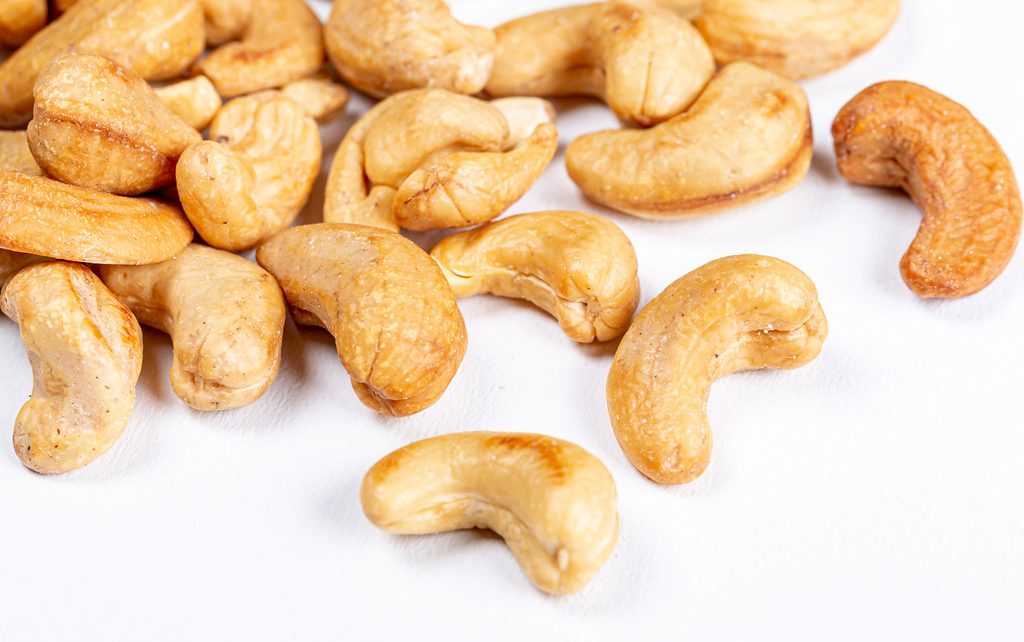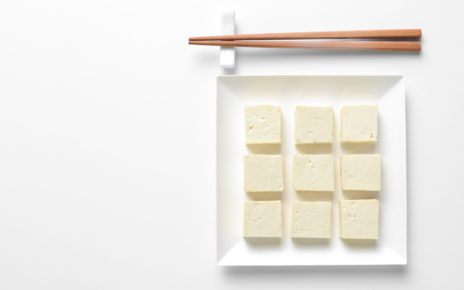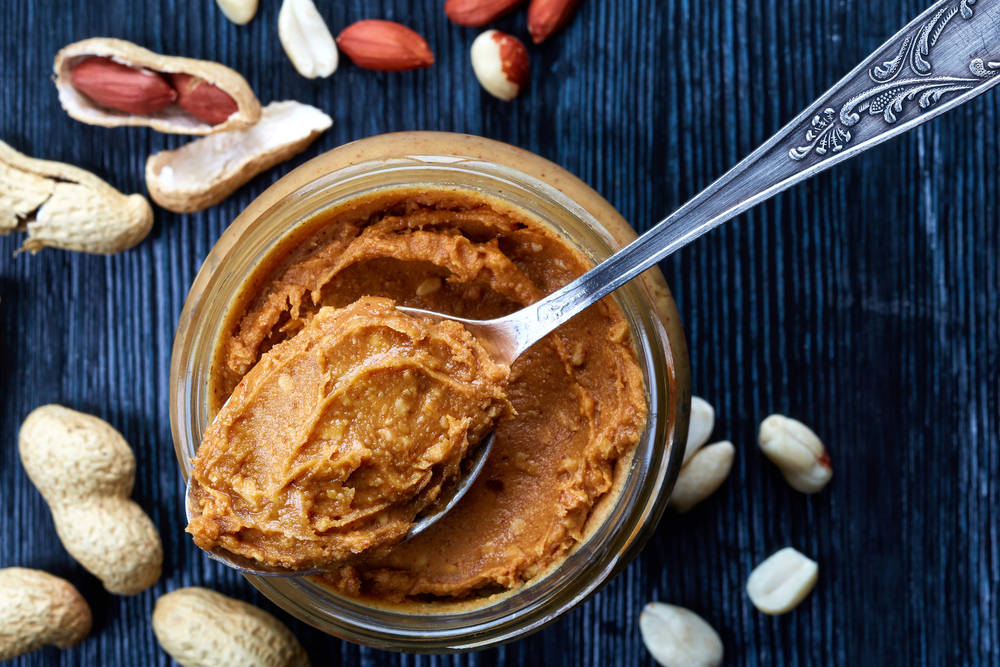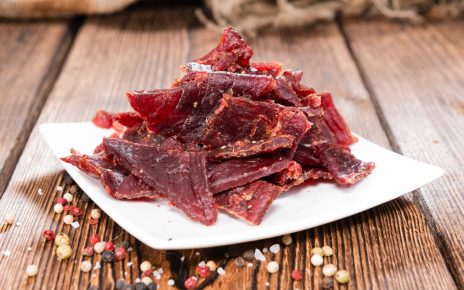What Are Cashews?
Wait. You’ve never had a cashew nut before? You’re missing out on half of your life. Cashews are a favorite of many people around the world, although they can be unforgiven if consumed in large quantities.
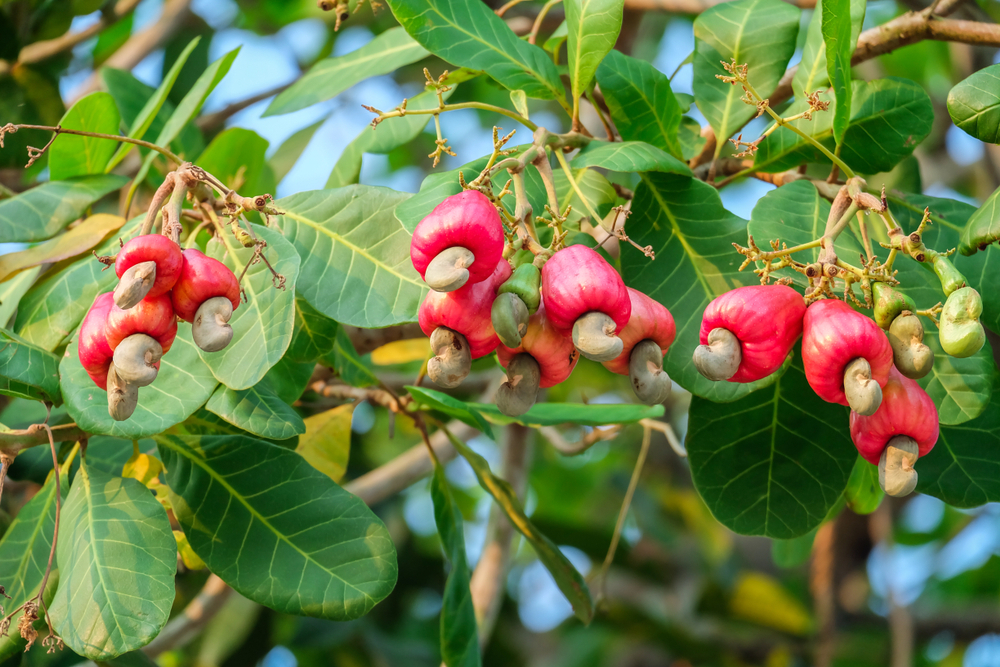
Cashews are a nut that comes from a tree native to India and Southeast Asia. Cashews are used in cooking, baking, and as a snack food. Cashews are rich in protein, fiber, iron, magnesium, phosphorus, potassium, zinc, copper, manganese, and vitamin B6. Cashews are also a great source of monounsaturated fats, which are known to lower cholesterol.
Copper can be found in other foods such as sesame seeds, liver, legumes, seafoods (such as oysters) and whole grains. [1]
What nutrients do cashew nuts contain?
Copper
Cashews contain copper, which is vitally important for our health. It works with enzymes in the body to produce melanin, which is responsible for skin and hair coloring. It also helps form neurotransmitters in the brain and create blood cells.
Vitamins B6
Cashews contain vitamin B6 which functions as a coenzyme in the body. It helps our bodies turn food into energy and also helps keep our nerves and blood vessels healthy.
Vitamin B6 can be found in other foods such as salmon, tuna, chicken, beef, pork, potatoes, spinach and bananas.
Manganese
Cashews also contain manganese which is important for our overall health. Manganese helps produce essential enzymes for digestion and absorption of food. It is also necessary for the formation of strong bones and connective tissue.
Manganese can be found in other foods such as green leafy vegetables, whole grains, nuts (such as almonds) and fruits (such as pineapple).
Iron
Cashews are a good source of iron. Our bodies use iron to make hemoglobin, which carries oxygen in our blood stream. Without hemoglobin we would not be able to get enough oxygen and we would die! Iron can also help prevent anemia (a decrease in red blood cells) and keep us alert and energetic.
Iron can be found in other foods such as clams, liver, oysters, beef, turkey mince , chicken breast, sunflower seeds or lentils.
Vitamins B1, B3 & E
Cashews are also a good source of thiamine (B1), niacin (B3) and vitamin E . Each of these vitamins is involved in energy metabolism – they convert the food that we eat into the energy that our bodies need to function.
Thiamine can be found in other foods such as pork, kidney, navy and black beans, trout, salmon and whole wheat pasta.
Niacin can be found in other foods such as chicken, beef, tuna, salmon, turkey, asparagus and broccoli.
Vitamin E can be found in other foods such as almonds, peanuts, sunflower seeds, spinach and fortified cereals.
Cashews are a good source of many important nutrients! So next time you’re looking for a healthy snack – go for the cashews!
Health Benefits of Eating Cashews
Cashews are also a great choice for those who are trying to maintain a healthy diet. Cashews are a great alternative to other nuts such as almonds, pecans, walnuts, and pistachios. Cashews are also lower in calories than other nuts.
There are many benefits of having them occasionally, including:
1. Lower cholesterol. Cashews contain monounsaturated fats, which are considered heart healthy fats. Monounsaturated fats are believed to lower bad cholesterol and raise good cholesterol.
2. Increase energy. Cashews are rich in magnesium, which is essential for maintaining normal nerve and muscle function. Magnesium is also needed for proper bone development.
3. Prevent cancer. Cashews contain antioxidants that protect against cell damage. Antioxidants are believed to prevent cancer.
4. Reduce inflammation. Cashews are rich sources of vitamin E, which is believed to reduce inflammation. Inflammation is associated with many diseases including cancer.
5. Improve digestion. Cashews are high in fiber, which aids in digestion. Fiber also helps control appetite.
6. Promote cardiovascular health. Cashews are rich source of potassium, which is essential for regulating heart health. Potassium is also necessary for maintaining fluid balance in the body.
7. Maintain healthy bones. Cashews are rich with calcium, which is essential for building strong bones. Calcium is also required for maintaining normal nerve and skeletal muscle function.
Calories In Cashews
It is well established that cashews are loaded with nutrients and make for a tasty snack.
However, cashews are high in calories. One ounce of cashews contains about 200 calories. From that, you can probably see how this can quickly become a problem. One serving of cashews contains about 8 grams of protein, 5 grams of fat and 20 grams of net carbs, making it not very keto friendly, especially if you surpass the 100g serving size.
Cashew nuts are a good source of healthy monounsaturated fats, with over 18 grams per 100 grams. This is nearly 80% of the daily recommended value. They also contain a small amount of polyunsaturated fat, with around 2 grams per 100 grams.
If you’re looking for a healthier alternative to cashews, try almonds. Almonds are lower in calories and contain less saturated fat than cashews. Almonds are also a good source for vitamin E, calcium, and fiber.
Are Cashews Low Carb Nuts?
No. From looking at the macronutrient breakdown above, you can quickly see how the total carbs can add up. And since the keto diet is a popular weight loss plan that involves eating a lot of fat and very few carbs, you may have a difficult time staying in ketosis.
The main goal of this diet is to burn fat and lose weight. To achieve this, you must follow a strict diet plan. One of the most important aspects of this diet can be selecting the right nuts. Try these options instead:
1. Almonds. Almonds are rich in protein and fiber. They are also a great source of vitamin E, magnesium, potassium, iron, copper, zinc, manganese, phosphorus, and selenium. Try almond butter for a quick fix.
2. Brazil nuts. Brazil nuts are high in selenium, which is essential for thyroid function. Selenium is also beneficial for cardiovascular health.
3. Peanuts. Peanuts are high in monounsaturated fats, which are known to lower cholesterol. They are also a source of folate, thiamine, and vitamin K.
4. Pistachios. Pistachios are high in vitamin E, magnesium, and copper. They are also a rich source of lutein, zeaxanthin, and beta carotene.
5. Walnuts
6. Macadamia Nuts
Macadamia nuts, for example, may be a better option than cashews.
Cashews are high in carbohydrates and low in fat. This makes them unsuitable for the keto diet. Macadamia nuts, on the other hand, are low in carbohydrates and high in fat. This makes them a much better choice for those following the keto diet. Macadamia nuts also provide a number of other health benefits, including lowering your cholesterol levels and reducing your risk of heart disease.
Like most nuts, macadamia nuts are full of monounsaturated fats that can improve your lipid profile. This means they can help lower your LDL (low-density lipoprotein) cholesterol levels while increasing the HDL (high-density lipoprotein) ones. What’s more, some studies show that including just two ounces of nuts like macadamias into your daily diet can lower blood pressure by about five to six points.
do cashew nuts affect blood sugar levels?
There is no definitive answer to this question as every individual reacts differently to foods. However, most people find that cashew nuts do not significantly affect blood sugar levels. This means that they can be enjoyed as part of a healthy, balanced diet by those who have diabetes or are watching their blood sugar levels closely.
In fact, cashew nuts are an excellent source of healthy monounsaturated and polyunsaturated fats, which play an important role in maintaining optimal health. These fats can help reduce the risk of cardiovascular diseases and other chronic conditions like obesity and type 2 diabetes.
So if you’re looking for a nutritious, low-carb snack that you can enjoy anytime, cashew nuts are a great option!
The Verdict: Can I Have Cashews On The Ketogenic Diet?
The answer to this is mostly not unless you specifically time the consumption. They are not well suited to the low carb diet. Regardless, be sure to follow these guidelines:
1. Eat cashews in moderation. Eating too many cashews will get you fat and knock you out of ketosis.
2. Limit your intake of nuts in general. Nuts are high in calories and fat. 3. Eat other foods. Other foods such as low-calorie fruits, vegetables, and lean meats can provide you with the nutrients you need without massively increasing your calorie or carb load
